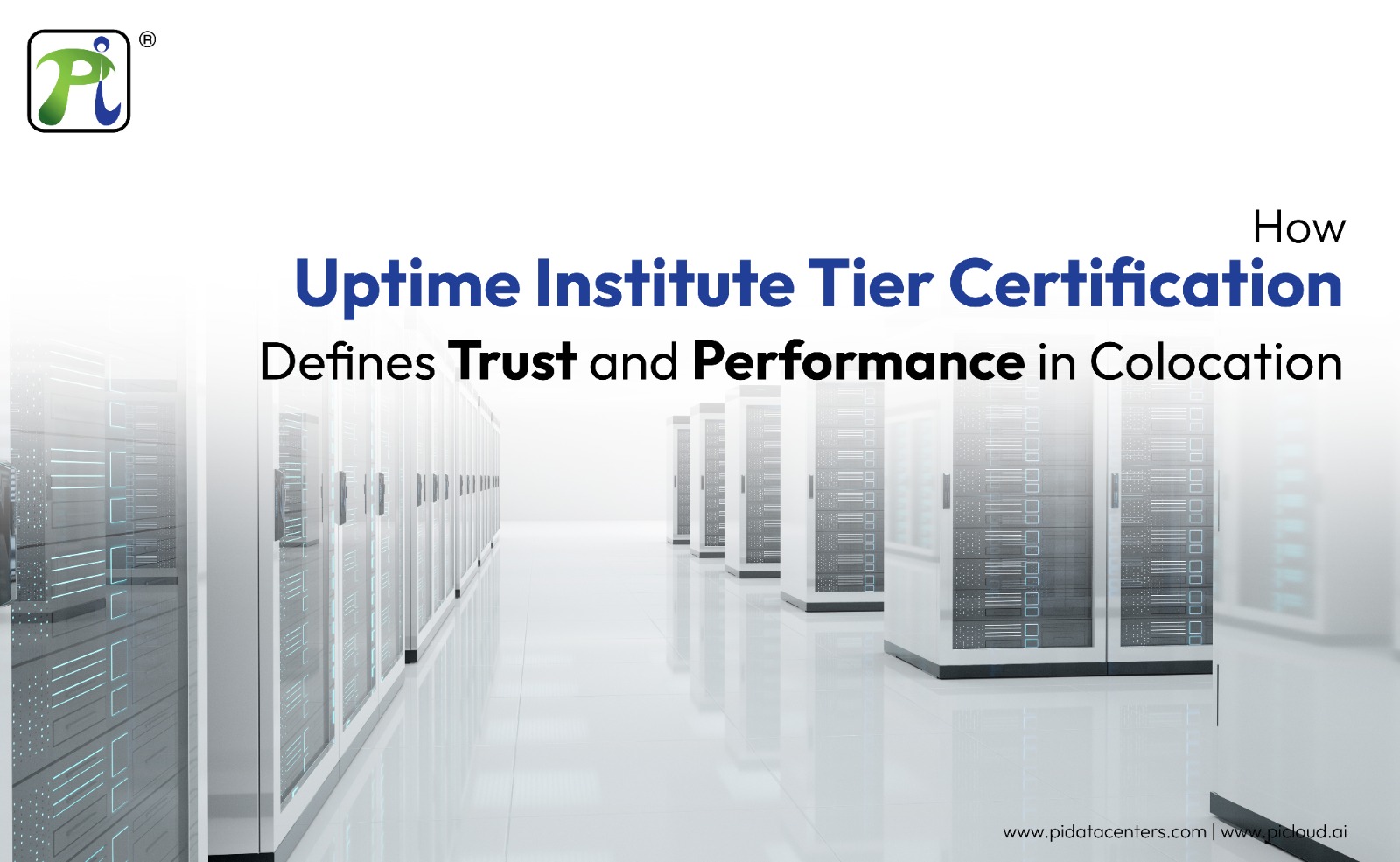We Will Get Back To You As Soon As Possible


Businesses can't afford to have downtime anymore because they rely on digital operations all the time. It can cost them money, reputation, and customer trust. As more businesses move important infrastructure to colocation and cloud services, they want data centers that are reliable, durable, and clear about how reliable they are.
This is where Uptime Institute Tier Certification comes in. This is the best way to tell how well a data center is built, kept up, and run to make sure it always works and is available. In other words, it's a sign of trust.
In this blog, we'll walk you through:
Uptime Institute created the Tier system to standardize how we judge a data center's reliability, availability, and design. The Tier Certification is a formal audit performed by Uptime (the only licensed body for this) that verifies a facility meets certain requirements in design, construction, and operation.
In essence:
Because it's an objective, third-party measure, Tier Certification helps businesses compare colocation providers more meaningfully, rather than relying solely on marketing claims.
Each Tier level builds the previous one, adding more redundancy, fault tolerance, and operational flexibility. Below is a simplified comparison of the four levels:
| Tier | Description | Key Capabilities | Typical Uptime / Allowable Downtime* |
|---|---|---|---|
| Tier I | Basic infrastructure | Minimal redundancy; even routine maintenance may require shutdowns | ~99.671% uptime → ~28.8 hours downtime/year |
| Tier II | Redundant components | Some backup systems (power or cooling) but still limited fault tolerance | ~99.741% uptime → ~22 hours/year |
| Tier III | Concurrent maintainability | All components and paths can be serviced without downtime; N+1 redundancy | ~99.982% uptime → ~1.6 hours/year |
| Tier IV | Fault tolerant | Fully redundant (2N or 2N+1), with no single points of failure | ~99.995% uptime → ~25–26 minutes/year |
Key distinctions in everyday terms:
Some data centers or providers also use terms like "Tier III+" in marketing, but that's usually informal and not an official Uptime classification.
When it comes to selecting a colocation or hybrid cloud infrastructure partner, businesses can't afford to rely on assumptions or promises. The reliability of your IT backbone determines how well your operations perform, how customers experience your services, and ultimately, how your brand is perceived. This is where Uptime Institute Tier Certification becomes a game-changer. It delivers measurable assurance of performance, reliability, and Uptime, all backed by a third-party evaluation. Here's why it truly matters:
In a market filled with claims of "maximum uptime" and "fault-tolerant design," Tier Certification acts as a trust seal. It's not just a self-declared status but a third-party verification that a data center has been tested, audited, and validated against globally recognized standards. When a facility achieves this certification, it proves that its infrastructure, from power and cooling to redundancy and fault management, meets the benchmarks defined by the Uptime Institute.
For businesses, this translates to confidence. You can rely on a certified data center knowing that it's built and operated to maintain consistent Uptime and performance, no matter the challenges.

Choosing between multiple colocation providers can be challenging when everyone promises reliability. Tier Certification simplifies this process by offering a clear, standardized benchmark. Instead of comparing vague uptime percentages or marketing claims, you can assess providers based on their certified Tier level I, II, III, or IV - each representing a specific level of redundancy and fault tolerance.
This objective comparison helps businesses make data-driven decisions, aligning their infrastructure needs with the right service provider. It ensures you get measurable reliability, not just marketing language.
Every minute of downtime can mean lost transactions, interrupted services, and damaged reputation; especially for industries like banking, healthcare, or e-commerce. Higher Tier levels significantly minimize these risks. For instance, Tier III and Tier IV data centers are designed to handle maintenance and unexpected equipment failures without disrupting operations.
By choosing a certified, higher-tier facility, businesses gain an extra layer of protection against failures, maintenance downtime, and human errors. It's about building resilience into your IT strategy, ensuring that critical workloads keep running even during unforeseen issues.
The Tier Certification process doesn't just assess physical infrastructure, it also evaluates operational excellence. During certification, the data center must demonstrate robust processes for maintenance, monitoring, and management. This rigorous evaluation often uncovers potential weaknesses and encourages continuous improvement.
For customers, this means you're not just hosting your data in a facility with strong hardware; you're entrusting it to a team that follows best practices, adheres to global standards, and is committed to ongoing operational efficiency. A certified data center is a well-run data center, and that reflects directly in its performance and reliability.
It's true that higher-tier data centers come with a higher price tag, but the real question is, can your business afford downtime? For mission-critical operations, even an hour of downtime can cost thousands, sometimes millions, in losses. Tier Certification helps businesses strike the right balance between cost and reliability.
By understanding the differences between Tier levels, you can choose a facility that aligns with your risk tolerance and business continuity needs. In most cases, investing in a certified Tier III or IV data center pays off in the long run by reducing unplanned outages, maintenance disruptions, and reputational damage.
In today's data-driven world, compliance and governance are not optional — they're mandatory. Industries like finance, healthcare, and e-commerce operate under strict regulations that demand data protection, uptime guarantees, and transparency. Tier Certification supports these needs by proving that your infrastructure adheres to recognized availability and reliability standards.
When combined with other security certifications such as ISO 27001, SOC 2, or PCI-DSS, Tier Certification enhances your compliance posture. It reassures regulators, clients, and partners that your business infrastructure is built on secure, dependable, and industry-compliant foundations.
In an era where business success hinges on uninterrupted, high-performance infrastructure, partnering with a reliable colocation provider is crucial. Uptime Institute Tier Certification stands as a global, independent benchmark in data center reliability. By understanding what each tier means and how to use that knowledge, you empower your organization to make smarter infrastructure decisions.
When evaluating colocation or cloud providers, think beyond just price or features. Look for proven reliability through certified infrastructure, robust operations, and clear SLAs. That's how you ensure that your IT backbone can keep pace with your ambitions reliably, securely, and efficiently.
Questions? We're here to help.
©2026 Pi DATACENTERS® Pvt. Ltd. All rights reserved
